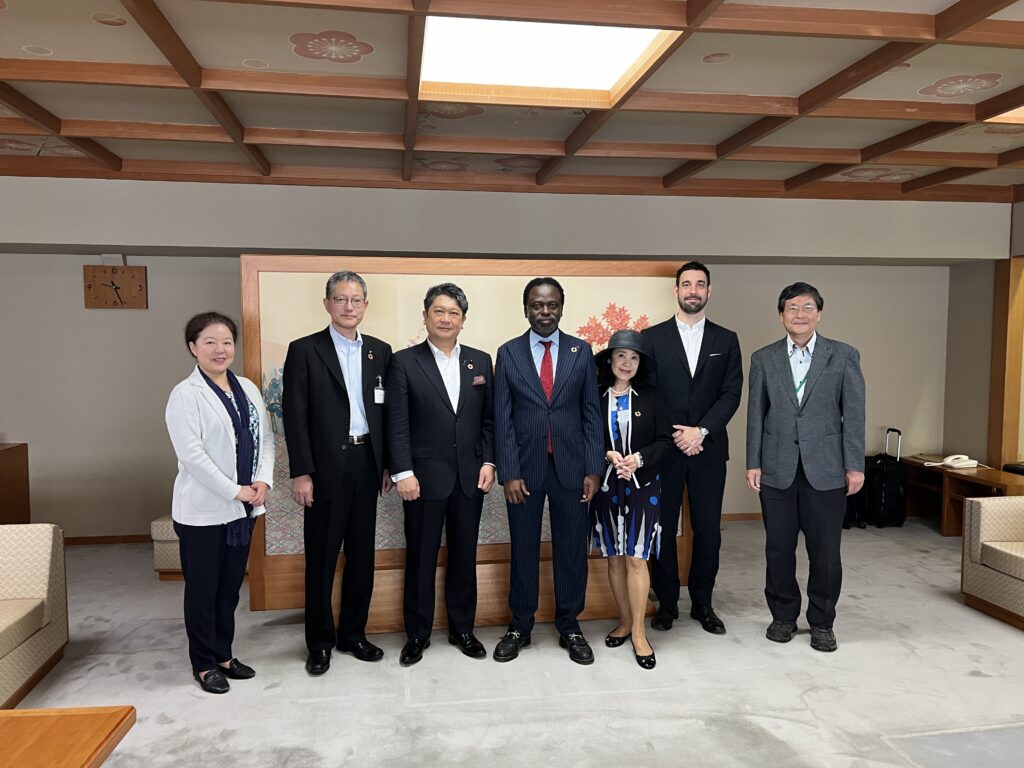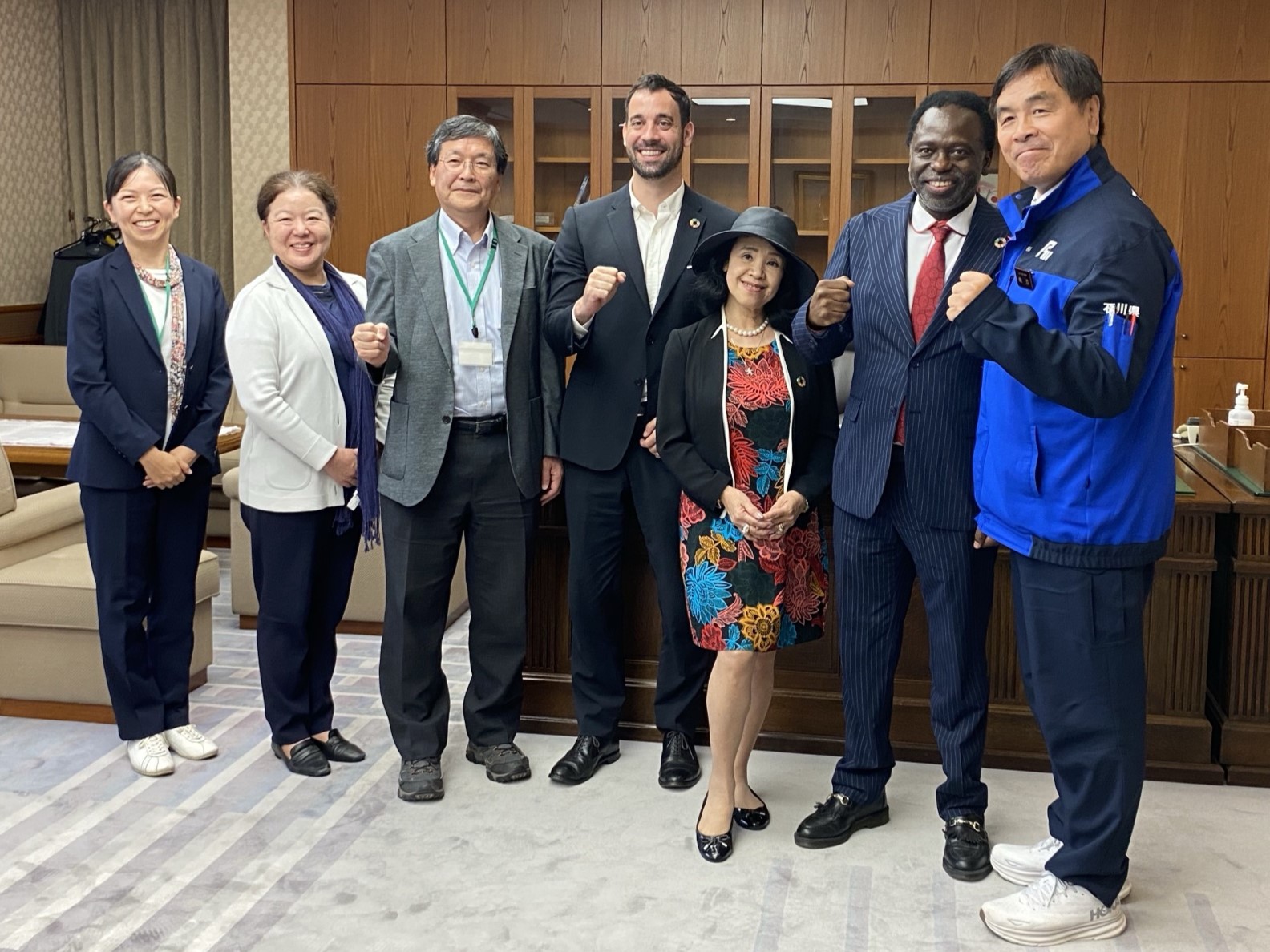On 21-22, August 2024, UNU Rector Tshilidzi Marwala visited Kanazawa City, Ishikawa Prefecture, for the first time since assuming office last year and paid a courtesy call on Ishikawa Governor Hiroshi Hase and Kanazawa Mayor Takashi Murayama. He also delivered a lecture at the opening of the 40th United Nations University Global Seminar held in Ishikawa this year.
During the courtesy visit to the Ishikawa Prefectural Government on 21 August, Rector Marwala spoke about the Globally Important Agricultural Heritage System (GIAHS) that UNU-IAS OUIK has been promoting in collaboration with the prefecture, Noto Peninsula local governments, and related organizations, as well as efforts for reconstruction following the 2024 Noto Peninsula earthquake.
Governor Hase said, “In Ishikawa Prefecture, we have been promoting initiatives that make the most of the nature and climate of the region, such as Noto’s satoyama and satoumi, and the UNESCO Global Geopark in Hakusan City. However, on 1 January, the Noto Peninsula earthquake occurred. We would like to add new value to the recovery efforts, while at the same time, linking them to sustainable development. I encourage you to make this one of the subjects of your research as we work towards the realization of a sustainable society.”
Rector Marwala said, “This was my first visit to Ishikawa Prefecture, and I learned about the initiatives in Noto. I strongly feel the importance of sustainable agriculture in addressing issues such as climate change. I am also impressed by the sustainable recovery efforts that leverage the region’s biological and cultural diversity and landscape. I hope to continue contributing to the recovery efforts.”
After visiting the prefectural governor, the group went to Gyokusen’inmaru Garden for a tea ceremony experience. Afterwards, they visited Kenrokuen Garden, where OUIK researcher Juan Pastor Ivars explained Kanazawa’s unique garden culture and biocultural diversity.

Courtesy visit to Kanazawa City Mayor Takashi Murayama
During a courtesy visit to Kanazawa City Hall on 22 August, Rector Marwala spoke about the research on Japanese gardens and green infrastructure in Kanazawa, which is being conducted by UNU-IAS OUIK in cooperation with Kanazawa City, the localization of SDGs, and the youth empowerment program for high school students in Kanazawa City.
Mayor Murayama stated, “With research from UNU-IAS OUIK and last year’s recognition by the United Nations Environment Programme as a role model city for generation restoration, the unique urban nature and cultural landscapes of Kanazawa, which we citizens have taken for granted, are being re-evaluated.”
Rector Marwala added, “A student recently pointed out that among the 17 SDGs, there is one goal missing, which is ‘culture.’ After experiencing the beautiful cityscape and garden culture of Kanazawa, I strongly felt that cultural diversity is very important for the sustainability of the region.”





